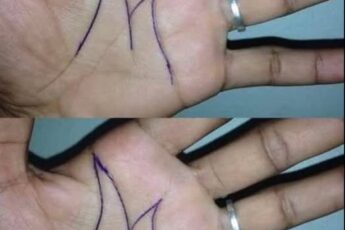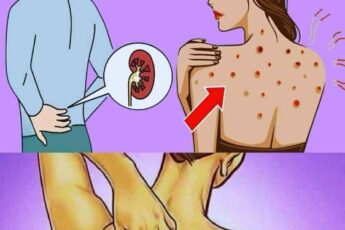I went to the gynecologist recently, and it wasn’t my usual doctor. I had to see someone new because my regular physician wasn’t available. From the moment I walked into the room, something about the atmosphere felt slightly uncomfortable. He was polite enough on the surface, but there was a certain tone in his voice that made me uneasy. Still, I reminded myself that this was a medical appointment, that I was there for a routine check, and I tried to brush off my instincts.
As the examination began, I lay back, telling myself to stay calm and just get through it. But then, out of nowhere, he leaned in slightly and whispered, “Your husband is a lucky guy.” My heart skipped. For a moment I didn’t even process what he had said. I froze, my mind scrambling to decide if I had really heard it correctly. But the words were clear, and the meaning was obvious. A doctor — someone I had trusted to treat me professionally — had crossed a line in the most inappropriate way.
Anger surged through me. I wanted to sit up and confront him right there, to shout, to call him out for being unprofessional, or even to punch him the way my adrenaline-fueled thoughts urged me to. But instead, I swallowed it, forcing myself to finish the appointment. I told myself I just needed to get out of that office as quickly as possible. The whole ride home, my mind replayed his words over and over, each time stoking the fire of my frustration. I felt humiliated and violated — not physically, but emotionally. Going to the gynecologist is already a vulnerable experience, and for him to say something like that left me shaken.
By the time I got home, I was exhausted from the emotional storm. I went into the bedroom, took off my clothes, and sat for a moment, still fuming about what had happened. That’s when I noticed something unusual. On my lower abdomen, just above the line of my hip, there was a small, faint bruise-like mark. At first, I brushed it off, assuming I must have bumped into something during the day. I’m clumsy sometimes, so that explanation felt easy enough. But then I reached down and touched it.
The spot was tender, just slightly sore to the touch. Not painful in a way that made me gasp, but enough to notice. Enough to make me pause. I couldn’t recall hitting myself or pressing into anything hard. It was as though the mark had appeared out of nowhere. A quiet unease settled over me.
I stood in front of the mirror, tilting my body at different angles to get a better look. The bruise wasn’t large, just a faint discoloration, the kind of thing you might not notice unless you were really looking. But it was there, undeniably. I kept pressing around it, wondering if I was imagining the soreness. I wasn’t. It was real, and it left me unsettled.
My mind raced through possibilities. Could it be nothing more than a simple bump I didn’t remember? Maybe from leaning against a countertop or the edge of a desk? Or was it something else, something connected to the examination earlier? The timing felt suspicious. My stomach tightened with a mixture of suspicion and fear.
I couldn’t shake the thought of the doctor’s whisper, the way he had blurred the line between professional and inappropriate. His words already felt like an intrusion. Now, combined with this mark, I felt uneasy in a deeper way. My rational side tried to push back, telling me I was overthinking, that bruises happen, that sometimes our bodies surprise us with little aches and spots. But the emotional side of me couldn’t let it go. What if it wasn’t random?
For the rest of the evening, I found myself distracted. Every time I walked past a mirror, I lifted my shirt to check the spot again. Every time I shifted in my chair, I noticed the faint soreness. I googled possible explanations — harmless things like skin sensitivity, minor trauma, or even changes in circulation. None of it reassured me. Each possibility only led to more questions.
And all the while, anger simmered in the background. If it had been any other doctor, if the appointment had gone normally, I might not have thought twice about a small bruise. But because of his comment, because of the way he made me feel, I couldn’t separate the two. I kept asking myself: had he pressed too hard? Had he done something unnecessary during the exam? Or was it just coincidence?
I lay in bed that night, tossing and turning, one hand resting on my abdomen as if keeping watch over the mysterious spot. I thought about calling the clinic in the morning, about reporting what he had said to someone higher up. I thought about switching doctors entirely, never going back there again. But above all, I thought about how quickly a routine check-up had spiraled into something that left me unsettled in both body and mind.
The bruise itself wasn’t severe. It wasn’t large, it wasn’t spreading, and it didn’t cause me significant pain. Yet, it carried weight because of everything else surrounding it. It became a symbol of the discomfort I had felt in that exam room, of the line that had been crossed when he made that comment. And now, every time I touched it, I was reminded of that moment, of the vulnerability that had been taken advantage of.
As the hours passed, I realized that it wasn’t just about the mark or the bruise itself. It was about trust — the trust I had expected to feel in a doctor’s office and the betrayal of that trust. It was about the lingering unease that followed me home, visible now on my own skin.
I promised myself that I wouldn’t stay silent about it. Whether I spoke to the clinic, sought out advice, or simply vowed to never see that doctor again, I knew I couldn’t ignore what had happened. The whisper, the bruise, the lingering soreness — they were all connected now in my mind, a story I hadn’t asked to be part of but one I could no longer dismiss.
And as I drifted off to sleep, I pressed my hand gently over the faint bruise once more, hoping it would fade quickly, both from my skin and from my memory. Yet deep down, I knew the unease it had left behind would take longer to heal.




